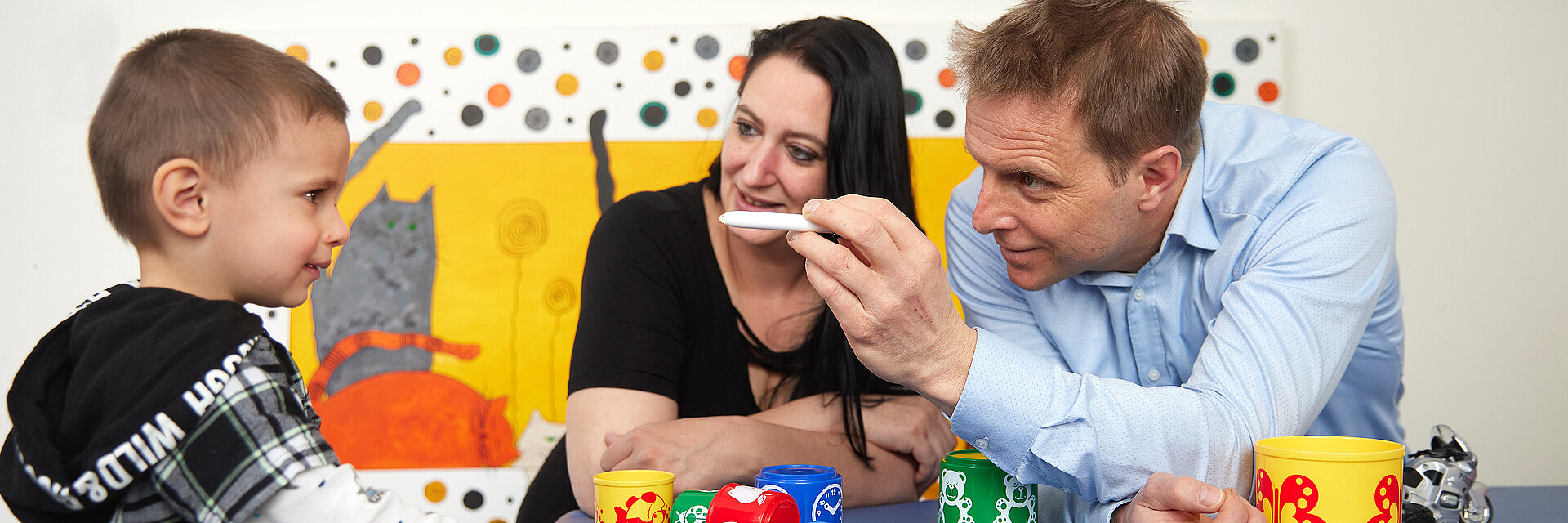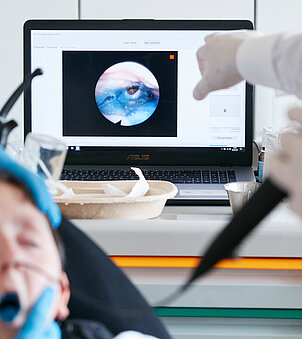
Outpatient clinic
Support meeting neuropaediatric demand of the region
The outpatient department of the Children's Hospital Schömberg contributes to the medical outpatient neuropaediatric care in the surrounding area. The outpatient clinic can only be visited after an appointment has been made.
It serves only exceptionally for the treatment of (neuropaediatric) emergencies in known patients. For all other emergencies, please contact your paediatrician, the paediatric emergency service or the ambulance service.
The majority of patients present because of developmental problems, behavioural problems, recurring headaches, epilepsy (suspected), ADH symptoms, suspected autism or neurological diseases that have already been clarified. These include movement disorders, inpatient and progressive neurological syndromes, so-called cerebral palsies or malformation syndromes.
In the context of the outpatient appointment, an EEG can be performed. If necessary, it can also be clarified during an outpatient appointment whether there is a need for an inpatient stay; if so, it can be planned. Under certain circumstances, pre- or post-inpatient follow-ups are also useful in known patients.

Range of services of our outpatient clinic
Outpatient medical care is predominantly clinical-assessment and counselling or developmental support.
For some special questions, such as botulinum toxin administration for spasticity or dystonia, and in individual cases for endoscopic examinations, you are welcome to make an outpatient appointment.
In the case of complex orthopaedic fittings or fittings requiring prior approval, such a consultation can take place prior to an inpatient stay. We are then prepared to realise even complicated and time-consuming fittings such as seat shell or positioning fittings in special construction within an inpatient stay of two to three weeks with our team of orthopaedic technicians, therapists and doctors.
The sonography-controlled administration of botulinum toxin for the treatment of spastic or dystonic movement disorders can be performed on an outpatient basis if sedation is not necessary and the indication for application has already been clarified in advance.
To a limited extent, there is also authorisation to follow-up outpatients with complex neurological disorders or epilepsies in young adulthood, if they already have been seen before their 18th birthday.
Patients permanently fitted with a tracheal cannula should undergo endoscopic checks of the position of the cannula and the tracheal mucosa at regular intervals, especially during growth.

In individual cases, patients with dysphagia may require outpatient follow-up examinations during an inpatient stay. Sometimes a preliminary swallowing examination is considered necessary before a planned stay. In these cases, a so-called FEES, i.e. a fibreoptic, endoscopic evaluation of the swallowing process, can be carried out during an outpatient presentation.



Contact
Marie Sieger
Management office
Phone: +49 7084 928 391
Telefax: +49 7084 928 28 391
E-mail: gf-sekretariat@kiklisch.de


